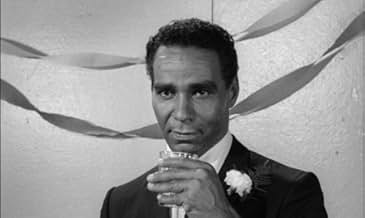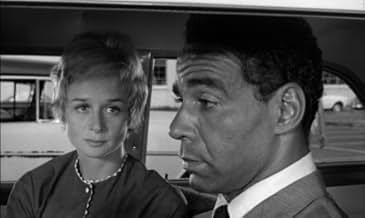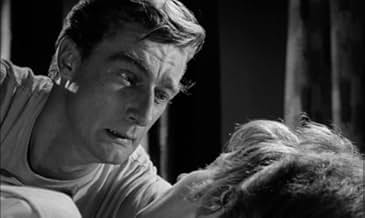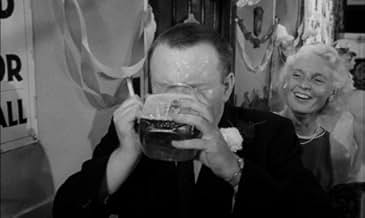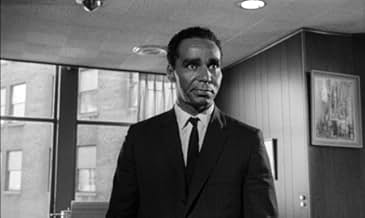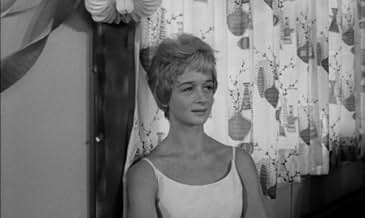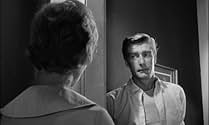In his wanderlust, Joe Cullen moves from the US to South America to work in a mining camp, he leaving behind his wife Julie and their infant daughter, Ellen Mary. After Joe stops writing and... Read allIn his wanderlust, Joe Cullen moves from the US to South America to work in a mining camp, he leaving behind his wife Julie and their infant daughter, Ellen Mary. After Joe stops writing and sending money, Julie, not expecting Joe ever to return to her in he being dissatisfied wi... Read allIn his wanderlust, Joe Cullen moves from the US to South America to work in a mining camp, he leaving behind his wife Julie and their infant daughter, Ellen Mary. After Joe stops writing and sending money, Julie, not expecting Joe ever to return to her in he being dissatisfied with married life, files for divorce, and moves with Ellen Mary to the town of Howard to sta... Read all
- Nominated for 1 Oscar
- 2 wins & 4 nominations total
- Ellen Mary
- (as Marti Mericka)
- Martha Richards
- (as Vinette Carroll)
- Johnny Hruska
- (as Sam Weston)
- Orchestra Leader
- (uncredited)
- Bart
- (uncredited)
- Saxophone Player
- (uncredited)
- Minister's Wife
- (uncredited)
- Lawyer
- (uncredited)
- Wedding Guest
- (uncredited)
- Wedding Guest
- (uncredited)
Storyline
Did you know
- TriviaIntermarriage between African-Americans and Caucasians was illegal in 16 states until the US Supreme Court decision Loving v. Virginia was handed down on June 12, 1967. The court unanimously ruled that anti-miscegenation marriage laws were unconstitutional. In his opinion, Chief Justice Earl Warren wrote, "The freedom to marry has long been recognized as one of the vital personal rights essential to the orderly pursuit of happiness by free men. Marriage is one of the 'basic civil rights of man, fundamental to our very existence and survival. To deny this fundamental freedom on so unsupportable a basis as the racial classifications embodied in these statutes, classifications so directly subversive of the principle of equality at the heart of the Fourteenth Amendment, is surely to deprive all the State's citizens of liberty without due process of law. The Fourteenth Amendment requires that the freedom of choice to marry not be restricted by invidious racial discriminations. Under our Constitution, the freedom to marry, or not marry, a person of another race resides with the individual and cannot be infringed by the State." Interestingly, many anti-miscegenation marriage laws were enacted in the wake of African-American heavyweight champion Jack Johnson's marriages to two Caucasian women, as pointed out in Ken Burns' documentary Unforgivable Blackness: The Rise and Fall of Jack Johnson (2004). Johnson married his white mistress Etta Duryea in late 1910 or early 1911, then married another white woman, Lucille Cameron, soon after his first wife's September 1911 suicide. The two marriages outraged white America, and Johnson and Cameron fled America for Canada and then Europe under threat of lynching. Their relationship was fictionalized in the stage play, and subsequent movie, The Great White Hope (1970), for which the Caucasian playwright Howard Sackler won the Pulitzer Prize. The 1913 Massachusetts anti-miscegenation marriage law, which did not recognize any marriage made in a state forbidding the marriage of different classifications of people (the law left unspoken the racial issue of black and white; in Virginia, blacks were allowed to marry other, non-white "races"), was considered inoperative after Loving v. Virginia until in 2005, then-governor Mitt Romney used it as the basis to deny out-of-state couples the right to wed in the Commonwealth of Massachusetts after the Bay State's Supreme Court legalized gay marriage.
- ConnectionsFeatured in Is That Black Enough for You?!? (2022)
Julie (Barrie) is a divorced mother of a young girl. The father abandoned them years ago and Julie works at the company where Frank (Bernie Hamilton) works. The meet and through the course of spending time together, they find that there is an attraction. Eventually, they decide to get married--even though they realize it might cause a few heads to turn. After all, she is white and he is black. Despite a bumpy start, things work out and the young family prospers and grows. Things look pretty good, right? Well, they do until the child's biological father shows up unexpectedly. Now the man (?) wants his daughter--mostly because his ego cannot stand that his ex- is with a black man.
This is a well made film but I must warn you that it will rip your heart out. This is NOT a complaint. Heck, back in 'the good old days', it was STILL illegal for blacks and whites to marry in many southern states and in others it was quite possible to lose custody of a child simply because you married someone of another race. Crazy...and pretty stupid. So, it's great that the movie draws attention to it. My only complaint is that the film, while very interesting, is way underplayed--too underplayed. Some more emotion in the acting and relationship between Frank and Julie would have made the movie better overall.
- planktonrules
- Jan 21, 2015
- Permalink
- How long is One Potato, Two Potato?Powered by Alexa
Details
- Release date
- Country of origin
- Language
- Also known as
- Jedan krompir, dva krompira
- Filming locations
- Painesville, Ohio, USA(".............where this picture was shot in its entirety, our thanks.")
- Production company
- See more company credits at IMDbPro
Box office
- Budget
- $340,000 (estimated)
- Runtime1 hour 32 minutes
- Color
- Sound mix
- Aspect ratio
- 1.37 : 1
Contribute to this page


